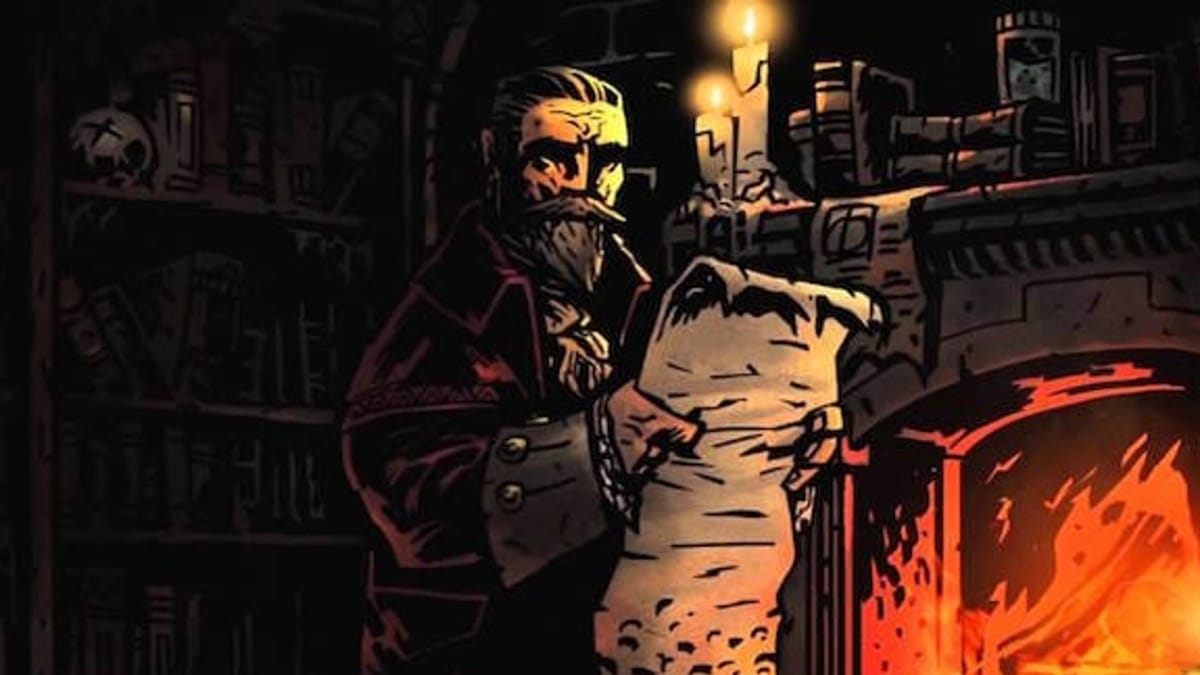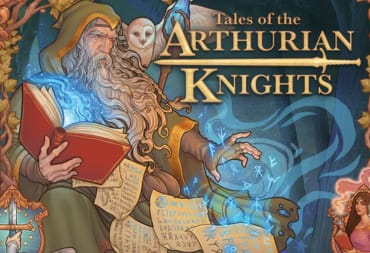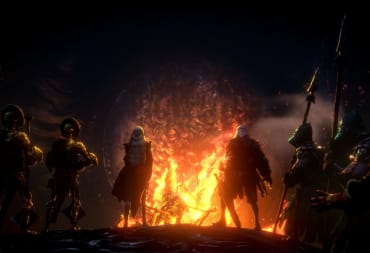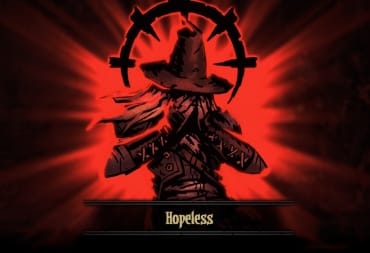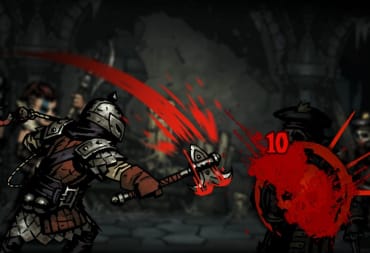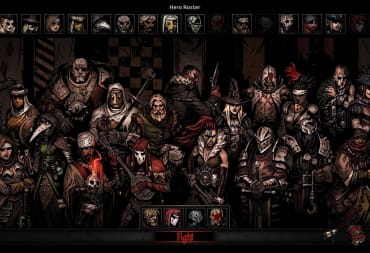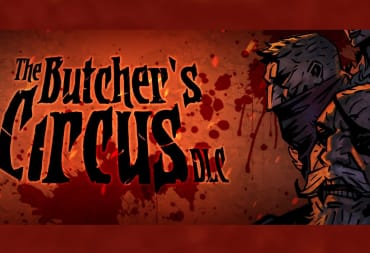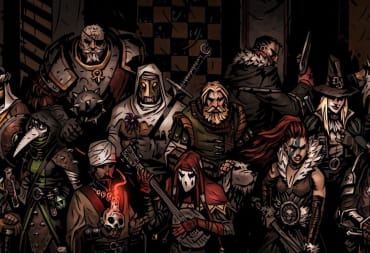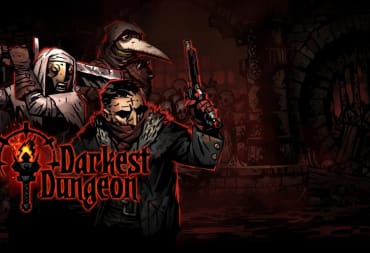Darkest Dungeon is fantastic. There really isn't any other way for me to say it, because that's just what it is. Darkest Dungeon takes the classic RPG genre, combines it with some of tabletop's faithful (and often frustrating) dice rolls, and absolutely slathers it in Gothic and Lovecraftian imagery, creating an intense atmosphere as well as an enticing world.
Many things contribute to Darkest Dungeon's unique identity, from the striking art style to the crushing stress mechanic. However, I want to talk about the element that brings the entire game together in my eyes: the fantastic narration of Wayne June.
You probably haven't heard of Wayne June before, and that's because he usually doesn't do voice acting, or any acting at all for that matter. What he has done, though, is audiobooks. He's done fantastic readings of iconic works from horror masters Poe and Lovecraft in the past—from The Raven to The Shunned House, he's used to setting a dreary tone.
And it shows. Darkest Dungeon's writing captures Lovecraft's liberal use of purple prose, and the voice of Wayne June is what brings it to life. I can't imagine hearing anyone else remind me that overconfidence is a slow and insidious killer after an easy victory over the forces of darkness or tell me that my dying crusader is perched at the very precipice of oblivion at this point. The narrator has become as synonymous with the game in my mind as plague doctors and party wipes.
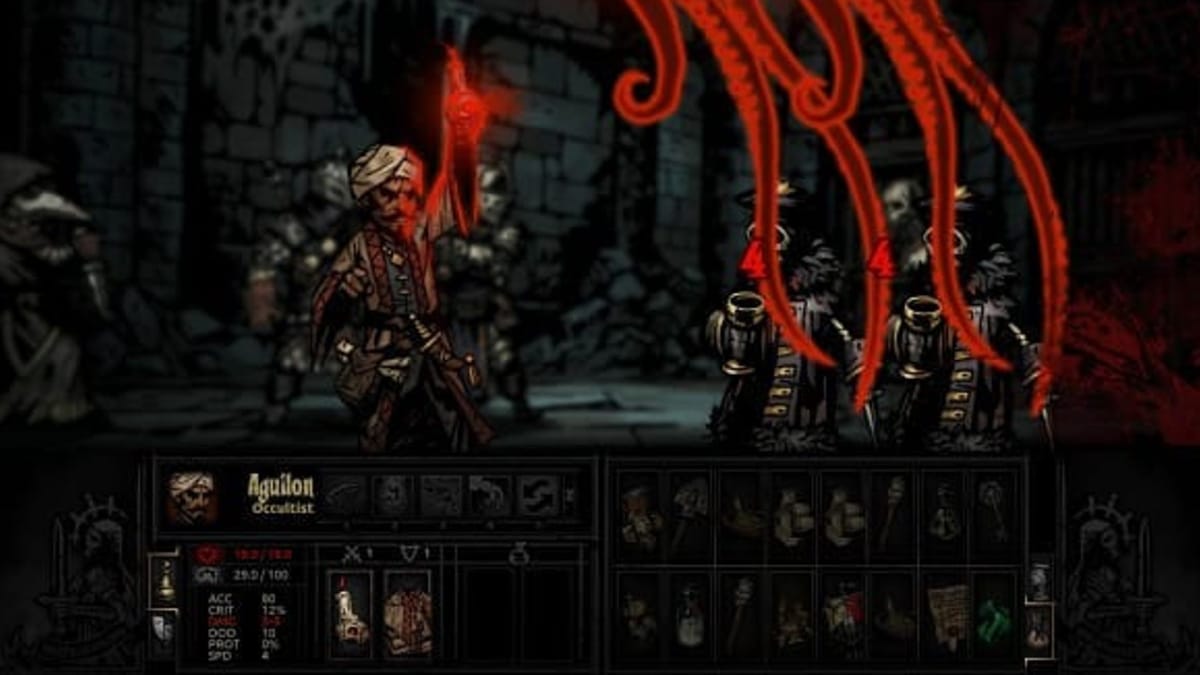
But the narration is more than just a little cherry on top - it's central to the experience. The hopeless narrator is the one who kicks off the game with an offscreen suicide, his dreary death setting the tone for the struggle to come. Yet still he looks over your journey, never too hopeful to see your party return home to the hamlet. And this very pity the narrator shows for you and your warriors makes it even more triumphant when he waxes heroic after your heroes gain a virtue, punctuating their finest hour.
Obviously, Darkest Dungeon isn't the first game to use narration to set a tone. Bastion used narration to give the game a relaxed tone, the unreliable narration of Call of Juarez: Gunslinger was central to the plot and directly responsible for some of the more memorable moments of the campaign, and The Stanley Parable's narrator was the biggest obstacle players had to overcome.
However, I would argue this is the best application of narration in a game. Try playing Darkest Dungeon without it. Tell me if it's anywhere near as charming as it would be with it. And unlike the three games mentioned above, it doesn't impact the gameplay or story in any way. All it does is give the game a fantastic, easily identifiable sense of character.
Because every time mortality is clarified in a single blow or the tide changes, I can always count on Darkest Dungeon's haunting, omnipresent narrator to let me know.
Have a tip, or want to point out something we missed? Leave a Comment or e-mail us at tips@techraptor.net
